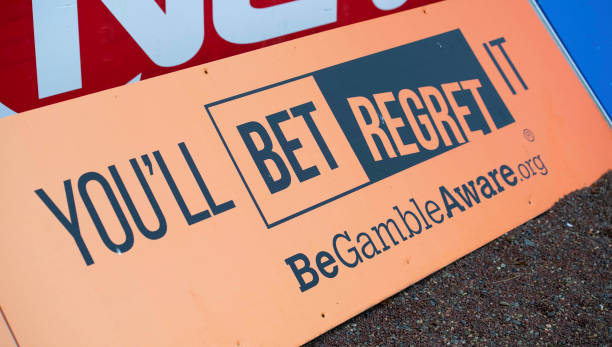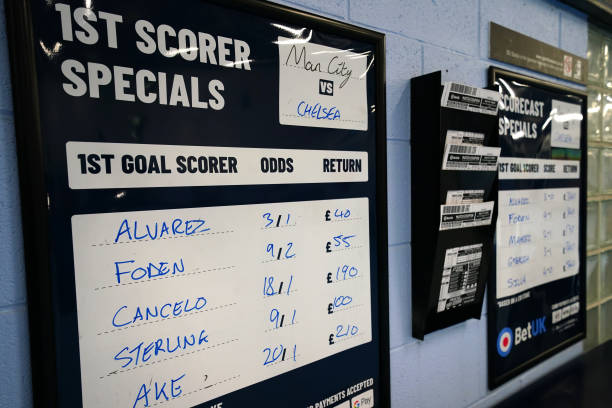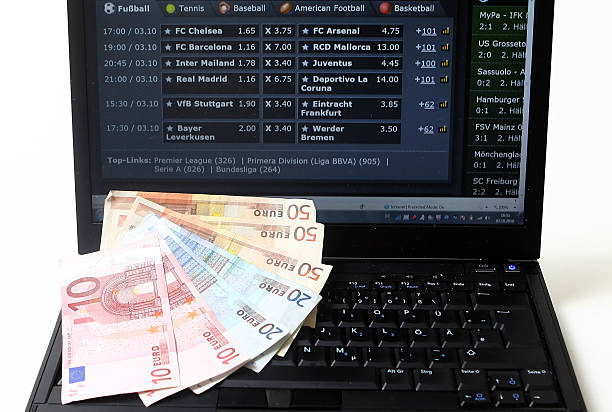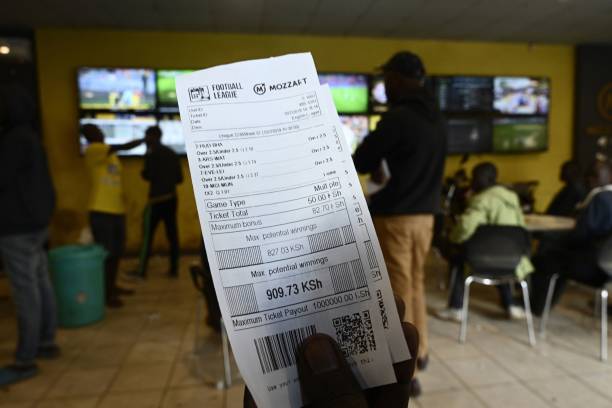
Introduction: How Psychological Biases Influence Sports Betting Decisions
In 2025, the landscape of sports betting continues to evolve. With data analytics, machine learning, and real-time insights playing larger roles than ever before, one crucial aspect remains often overlooked: the psychology behind betting decisions. Regardless of how informed a bettor may be, human emotions and cognitive biases frequently influence decisions in ways that can be detrimental to long-term success.
Understanding these psychological biases is essential for any bettor looking to improve their approach. In this guide, we’ll explore the common psychological biases that impact sports betting decisions, how to recognize them, and strategies to mitigate their effects for better, more rational betting.

Section 1: What Are Psychological Biases in Sports Betting?
Psychological biases refer to the systematic patterns of deviation from norm or rationality in judgment. In sports betting, these biases can cause bettors to make irrational or suboptimal decisions, often based on emotion rather than reason. Whether it’s overestimating a favorite team’s performance or letting past wins cloud judgment, biases can lead to significant losses if not managed correctly.
Types of Psychological Biases That Impact Sports Betting:
- Confirmation Bias
- Recency Bias
- Overconfidence Bias
- Anchoring Bias
- Loss Aversion
- Herd Mentality
- Gambler’s Fallacy
Understanding how each of these biases operates can help bettors make more rational, data-driven decisions.
Section 2: Common Psychological Biases in Sports Betting
1. Confirmation Bias
Confirmation bias occurs when bettors focus only on information that supports their existing beliefs or predictions while disregarding contrary evidence. This bias can be particularly harmful in sports betting when bettors have strong feelings about a particular team or player and ignore data that contradicts their opinions.
Example:
If a bettor believes that a particular soccer team is superior, they may only pay attention to the team’s recent victories and ignore losses or poor performances against top-tier opponents.
How to Overcome It:
- Actively seek out data and statistics that challenge your assumptions.
- Regularly analyze both sides of a bet before making a decision.
- Use objective data-driven tools, such as betting algorithms or expert analysis, to inform decisions.

2. Recency Bias
Recency bias happens when bettors place more weight on recent events than they should, assuming that current form will continue indefinitely. While recent results are important, they do not always reflect a team’s long-term capabilities.
Example:
A bettor may place a large bet on a basketball team that has just won five consecutive games, assuming they will continue their winning streak, ignoring the fact that the opponents were weak or had injuries.
How to Overcome It:
- Look at a team’s performance over a longer period of time (e.g., last 10 games) rather than focusing on just a few recent matches.
- Pay attention to the context behind recent wins or losses, such as injuries, home/away factors, and strength of opponents.
- Use historical performance data to help you contextualize recent results.
3. Overconfidence Bias
Overconfidence bias occurs when bettors overestimate their ability to predict outcomes based on past success. This can lead to placing larger bets than one should or taking unnecessary risks.
Example:
After a successful streak of bets, a bettor may feel invincible and begin betting larger sums on riskier markets, convinced that they can’t lose.
How to Overcome It:
- Stick to a betting strategy that emphasizes consistency and bankroll management.
- Set clear limits for how much you are willing to risk, and avoid chasing losses or increasing bet sizes after wins.
- Keep a record of all bets to reflect on past performance, helping you to objectively assess your results.

4. Anchoring Bias
Anchoring bias occurs when bettors rely too heavily on the first piece of information they receive about a game, often setting the course for all future decisions. This could be the opening line of odds or a team’s performance in the first quarter of a game.
Example:
A bettor sees that the odds for a match heavily favor one team at the start of the week and may continue to believe that the favorite will win, even after new data (e.g., injuries, lineup changes) suggests otherwise.
How to Overcome It:
- Continuously update your assessments as new information becomes available, such as player injuries or changes in form.
- Avoid locking in bets too early before analyzing all relevant data.
- Reassess your assumptions if new and conflicting data emerges.
SUGGESTED FOR YOU
How to Properly Set a Betting Budget & Stick to It: 7 Powerful Money Management Tips
5. Loss Aversion
Loss aversion refers to the tendency to fear losses more than valuing gains. In sports betting, this can lead to bettors holding on to losing bets for too long, hoping for a turnaround to avoid admitting a loss, or refusing to cut losses early.
Example:
A bettor places a bet on a football team and, as the game progresses, it becomes clear that the team is unlikely to win. However, the bettor refuses to cash out early or hedge their position, hoping for a miraculous comeback.
How to Overcome It:
- Set stop-loss limits and exit strategies before placing a bet to avoid emotionally driven decisions.
- Accept that losses are part of the betting process and make peace with them.
- Focus on long-term profitability rather than trying to recover short-term losses.

6. Herd Mentality
Herd mentality refers to the tendency to follow the crowd, especially when placing bets. Many bettors will place their wagers based on what they see others doing, rather than independent research or analysis.
Example:
If everyone is betting on a popular favorite team, others may also follow suit without properly analyzing the odds or the risks involved, assuming that the majority cannot be wrong.
How to Overcome It:
- Rely on your own research and data rather than following the crowd.
- Be cautious of “trends” in betting communities that may not be grounded in solid analysis.
- Understand that popular opinions do not always correlate with value bets or positive expected value (EV).
7. Gambler’s Fallacy
The gambler’s fallacy is the belief that past events influence future outcomes in a random process, even though the outcomes are independent. In sports betting, this could mean assuming that a losing streak is “due” for a win or vice versa.
Example:
A bettor may believe that after a series of losses, a team is “due” to win, despite no rational basis for this conclusion.
How to Overcome It:
- Understand that each event in sports is independent and based on the current conditions of the game, not previous outcomes.
- Use statistical models that incorporate independent variables rather than relying on past streaks or patterns that have no bearing on future results.
- Don’t rely on “gut feelings” or intuition when making decisions about upcoming games.

Section 3: How to Mitigate the Impact of Psychological Biases in Sports Betting
While psychological biases are natural, there are several strategies that bettors can adopt to minimize their impact and make better decisions.
1. Data-Driven Betting Approach
The most effective way to counter psychological biases is by relying on objective data. Analyze key metrics such as player stats, team form, head-to-head records, and injury reports. By making betting decisions based on data rather than emotion, you reduce the influence of biases.
2. Keep a Betting Journal
A betting journal helps you track your bets, analyze your decision-making process, and spot patterns in your betting behavior. This can help you recognize when biases may have influenced your choices and make adjustments moving forward.
3. Implement a Bankroll Management System
A solid bankroll management strategy can help you avoid the emotional rollercoaster of betting. By setting limits on how much you’re willing to bet per game and sticking to them, you can reduce the impact of biases like overconfidence and loss aversion.
4. Take Breaks and Stay Rational
When emotions are running high, take a step back. Betting while frustrated or excited can lead to poor decisions. Take breaks between bets to refresh your mindset and return with a clear, rational approach.

Section 4: The Role of Cognitive Dissonance in Sports Betting
Cognitive dissonance occurs when a person holds two conflicting beliefs at the same time, or when their actions contradict their beliefs. In sports betting, cognitive dissonance can manifest when bettors refuse to accept evidence that goes against their favored team or prediction.
Example:
A bettor may continuously bet on a team despite evidence of poor performance, convincing themselves that their team is bound for a comeback.
How to Overcome It:
- Embrace the idea that losing is part of betting and doesn’t reflect a lack of skill.
- Reevaluate your choices based on objective data and step away from emotional attachment to a particular team.
Section 5: Developing a Winning Mindset for Long-Term Sports Betting Success
To succeed in sports betting, it’s essential to cultivate a mindset that promotes rational thinking, discipline, and self-reflection. Here are a few tips for achieving this:
- Understand that betting is a marathon, not a sprint. Accept the highs and lows that come with sports betting, and focus on long-term profitability rather than quick wins.
- Focus on value bets. Identify bets where the odds are in your favor, not just those that seem appealing at first glance.
- Be patient and adaptable. The sports betting landscape constantly evolves, and your strategy should too. Adapt your approach based on new information and changing trends.

Conclusion: Mastering the Psychology of Sports Betting
In sports betting, psychological biases are a natural part of the decision-making process, but they don’t have to be detrimental to your success. By recognizing these biases, understanding how they affect your decisions, and adopting a disciplined, data-driven approach, you can improve your betting outcomes and build a sustainable, long-term strategy.
Key Takeaways:
- Awareness of biases like confirmation, recency, and overconfidence is essential for better decision-making.
- Rely on data-driven insights rather than emotional responses or trends.
- Employ bankroll management and betting discipline to mitigate the impact of psychological biases.
By focusing on a rational, strategic approach and learning to manage psychological influences, you’ll be well-positioned to achieve long-term success in sports betting.









